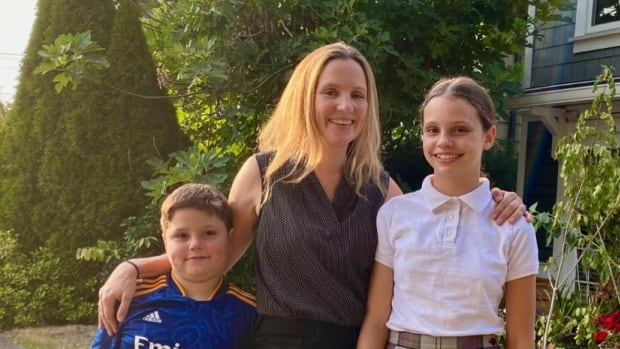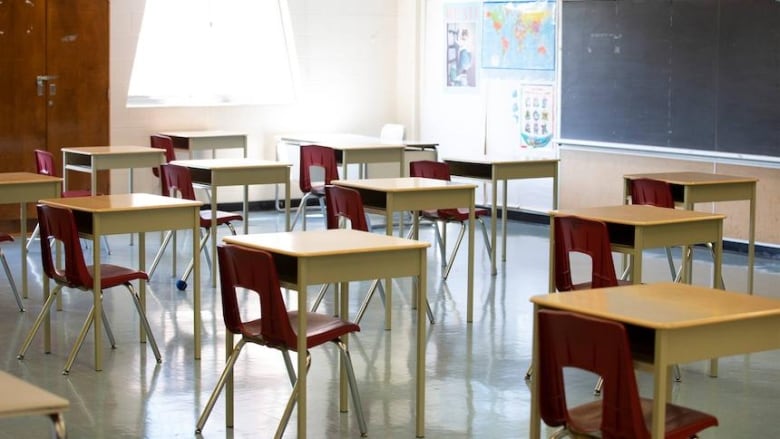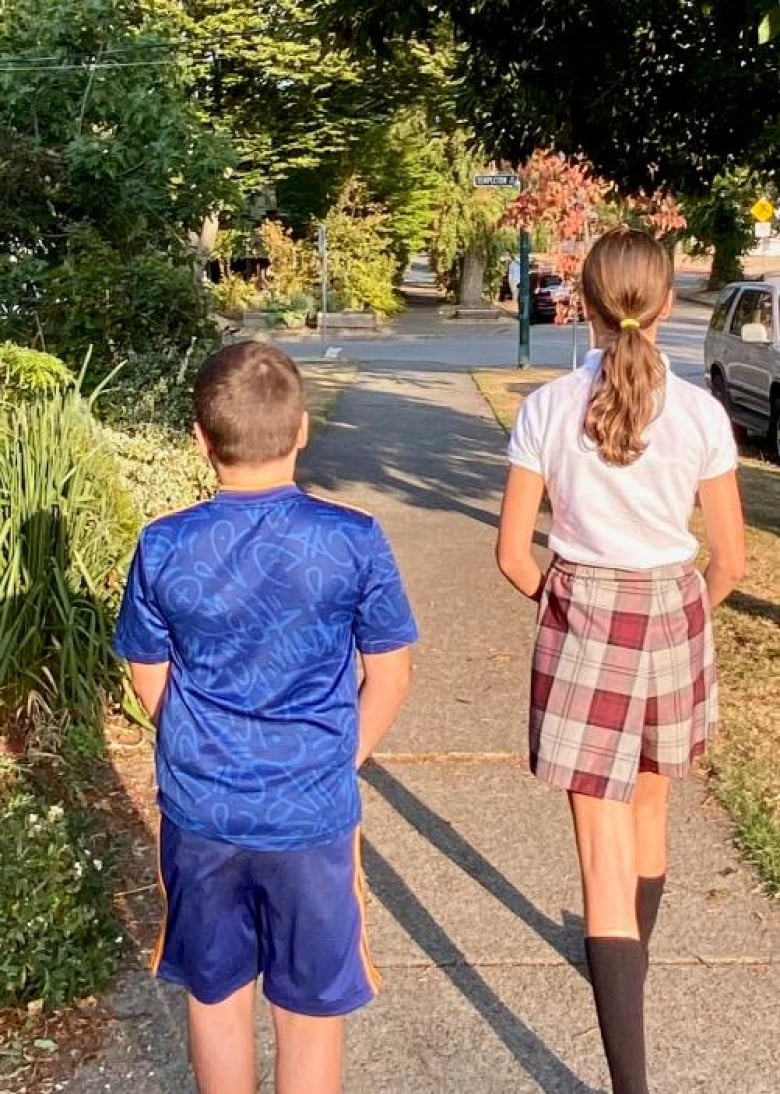
This First Person column is the experience of Shauna MacKinnon who lives in Vancouver. For more information about CBC’s First Person stories, please see the FAQ.
Driving from our home in East Vancouver to the west side of the city, I notice how the yards are larger and more manicured. As we approach my daughter’s private school, our car — which is still coated in dust from a summer spent camping and bumping down gravel roads — follows a train of shining Teslas and Mercedes. I can’t help but feel self-conscious.
“Are you ready for your first day?” I ask.
My nine-year-old daughter replies with a determined, “Yep.”
She looks smart in her new uniform. While I wonder how our middle class family will fit in with this posh school community, I am thankful for her uniform. At least that gives her a way to blend in.
The 30-minute car trip across the city is a journey into a lifestyle I never expected to inhabit. We had chosen to raise our kids in a neighbourhood known for its diversity and left-leaning attitudes. The kids could walk to school, and our work commutes could be done by bike. We valued the opportunity public school provided to meet children and families with a wide range of personal experiences that differed from our own.
That’s why I never thought I would send one of my kids to private school. But being a parent makes you do things you never expected.
Reading was always a challenge for my daughter. When the pandemic led to school closures, I got a first-hand experience of what she faced in school. It led to the unpleasant discovery that her little brother, two grades younger, was already a better reader than she was in Grade 3. She was furious.
“I can’t do this!” she screamed, tears of frustration welling in her eyes, as she stared at the school worksheet on our dining table. I thought back to all the nights that year that my daughter practised vocabulary words at home from Monday to Thursday only to complete Friday’s test like she had never seen the words before. I knew something was holding her back from learning but did not know what.
Her teacher encouraged us to spend $3,000 for a private psychoeducational assessment if we could afford it. A publicly funded assessment would be a “years long wait.” Her teacher warned us that waiting to understand the root of my daughter’s learning difficulties would mean missing a critical window for intervention.
The assessment revealed our daughter had difficulties with auditory and memory processing. The diagnosis made sense of her frustration.

The psychologist explained that for kids with language learning differences — commonly referred to under the umbrella term of dyslexia — much of the typical public school experience of worksheets, spelling tests and noisy classrooms is difficult for them to learn in.
But having an official diagnosis and a designation as a student with a learning disability was not a magic fix. My daughter attended a large elementary school in Vancouver where resource support was already stretched thin. Students with her type of learning disabilities do not trigger additional funding to support student needs.
Our daughter endured three years of after-school tutoring sessions with slow progress.
Eventually, with her building anxiety of knowing she was lagging behind her peers, things came to a head. “I want to go here all the time,” my daughter declared after wrapping up a summer camp held by a specialized private school for dyslexic learners. She had enjoyed the music and art classes, which made the daily hour of one-on-one tutoring tolerable. She also liked knowing that all of the students had challenges similar to her own.
At that moment, I could envision an array of possible futures for my daughter. People with unsupported dyslexia are more likely to experience mental health issues such as anxiety, homelessness, unemployment and abuse. And yet, others with dyslexia are among our most celebrated artists, inventors and entrepreneurs.
Considering those possibilities, I could not say no to private school despite the financial and logistical hurdles — or my own discomfort with ditching a public institution for a private offering.
The last year has been transformational. The small class sizes, regular one-on-one tutoring and commitment to teaching using a multi-sensory approach means my daughter is now engaged in learning at school. She comes home with stories about class content. Her reading has improved and she now writes using cursive that her grandparents “ooh” and “aah” over. Her anxiety about not keeping up with other kids her age is gone. I have found that the families at the private school are warm and welcoming. Like us, many of the parents sought out private school as a last resort after their children struggled in the public system.
There are times that I feel guilty knowing that we are investing more in our daughter’s education than in our son’s. Since he requires less support, we think the public system will serve him well enough.

As we begin our second year of this new arrangement, I am getting used to our new normal: my now 11-year-old daughter gets up early and heads out in uniform to private school; my son sleeps in and leisurely walks to our local public school.
We don’t want to give up on the public system. We are still holding onto the belief that public schools provide an important common foundation for building civil society. Maybe someday students like my daughter will get the support they need in public education.
Do you have a similar experience to this First Person column? We want to hear from you. Write to us at [email protected].